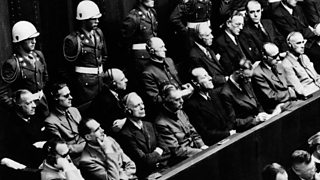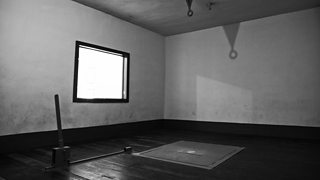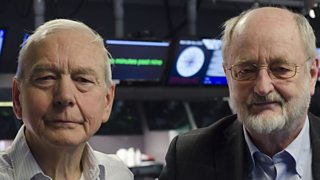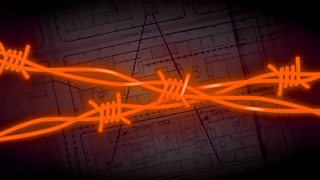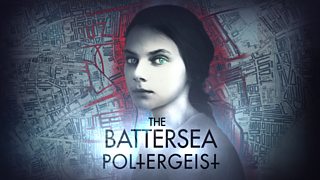The historical dramatist and his dissidents
By Jonathan Myerson, writer and director of Radio 4's drama-documentary series, Nuremberg.
Any historian moulds a story. Any responsible historian ensures that this story is wholly supported by the sources and, perhaps more importantly, is not fatally contradicted by any single fact. The result is a "historical truth" – not absolute but viable.
But the writer of historical drama, in a British tradition going back to Shakespeare (though I claim no such pedigree), has a still trickier task.
A "pure" historian can digress in any direction seen fit – the reader will travel along tangents until herded back to the main narrative.
But the drama audience – especially in audio drama – is not so easily led. Rather as psychologists tell us we can only manage about 50 friends, there is a limit to how many characters an audience member can absorb and follow at a single sitting.
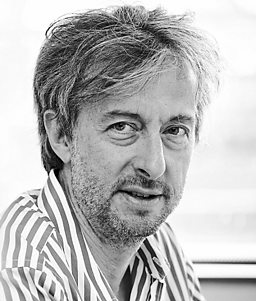
The result, from Henry VI to A Very English Scandal, is that historical individuals will need to be merged into composite characters – one name, whether real or imagined, to carry the standpoints of several like-minded participants. A minor simplification without any historical truth being invalidated.
Invented characters
So, as I sat trying to distil the gargantuan, 18-month process of the Nuremberg Trial, from first proposal to verdict, I knew some characters would need to be wholly invented. Just as Emily Watson’s leading character in Chernobyl represents a merger of a whole team of Soviet scientists, I created Sergeant Monelli of the 391st Anti-Aircraft Battalion to represent the hundreds of soldiers involved in tracking down the defendants across war-ravaged Europe – he voices the feelings and responses of them all.
And I invented the Honourable Diana Ravenscourt to represent the unsung army of women essential to the bureaucratic undertaking – she takes the minutes for Sir David Maxwell-Fyfe, who, as Attorney General, steered the London negotiations to create the court.
The gain of this flexibility is that almost every significant statement or attitude in the drama is verbatim or sourced. Time and again, in the recording studio, actors would say to me “That’s a great line” to which I could only reply, limply, “I wish I’d written it.”
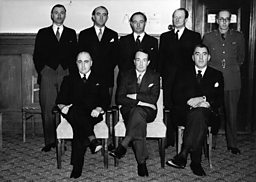
The British Prosecuting Counsel at the Nuremberg Trials in Germany, 1st December 1945. From left to right (back row) Major J. Harcourt Barrington, Major Elwyn Jones, MP, E. G. Robey, Lieutenant Colonel J. M. G. Griffith-Jones, Colonel H. J. Phillimore; (front row) Sir David Maxwell Fyfe, Attorney General Sir Hartley Shawcross, and G. D. Roberts, KC.
Photo © Fox Photos/Hulton Archive/Getty Images
Load-bearing lines
Having now written many historical dramas – from Reagan’s shock summit in Reykjavik with Gorbachev, to the last desperate days of the Prague Kindertransport – it’s crucially important to me that every single "load-bearing" line is sourced in this way and conveys a totally viable historical truth, even if now spoken by an ‘invented’ character.
Sometimes, existing individuals have to be merged.
And sometimes, existing individuals have to be merged.
Just as A Very English Scandal coalesced the standpoints of differing MPs into single characters, I merged all the British, French and Russian prosecutors into three individuals. They would be the single, identifiable mouthpiece for all their nations' court utterances (I couldn’t do the same with the American lawyers because I chose to dramatise a crucial tactical argument between them). So it would be Rudenko for the USSR, Dubost for France and Maxwell-Fyfe, who was present for every day of the trial, for the UK.
Sir Hartley Shawcross
The result is that eagle-eared British listeners will especially notice that, when I get to the British closing speech, Maxwell-Fyfe continues even though it was in fact delivered by the UK’s new Attorney General, Sir Hartley Shawcross. Shawcross had more than enough in his in-tray (the legislation to create the NHS, for starters) so he graciously allowed his Tory opponent Maxwell-Fyfe to continue as de facto Chief Prosecutor. According to the transcript, Shawcross only spoke on three of the trial’s 218 days, yet the last few paragraphs of his speech were some of the most heart-rending uttered in that courtroom. So was it fair, even at this poignant moment, to deny him his role?
There’s no doubt that this would be in tune with the one abiding story I aim to tell throughout this new dramatisation: to return the focus to the victims and witnesses. For me, too many previous dramatisations have focused on either the Nazi defendants (the excellent 麻豆社 2 Nuremberg: Nazis On Trial) or the lawyers (the ludicrous TNT mini-series Nuremberg). But the trial wasn’t about them.
And the emotional power of those final words derives entirely from the testimony which Shawcross had just read out. This was the statement of Hermann Graebe, a German engineer who found himself witnessing a mass shooting of Jewish families in occupied Ukraine. And here the dramatist finally gains an edge: that testimony could now be delivered "in person" by an actor playing Graebe.
No historiographical crime would be committed
But I still needed Shawcross’s words to drive home Graebe’s chilling testimony. Still havering, I went back to the sources and found that “British lawyers had been under instruction... to collect material for the final speech and write drafts on individual defendants... Lauterpacht had written a first draft on the legal aspects of the case while Griffiths-Jones prepared a synopsis of the rest.
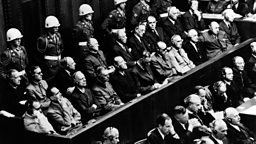
Archive on 4: Nuremberg Remembered. William Shawcross – son of Hartley Shawcross, the lead British prosecutor – speaks to those whose parents were brought together by the Nuremberg Military Tribunal.
"When Shawcross arrived in Nuremberg at the beginning of July he took the team’s material...” (The Nuremberg Trial by Ann Tusa and John Tusa, quoting the British Prosecution Minutes of 28th May). And while the Tusas go on to say that he “wrote it into a speech of oratorical and forensic distinction” I felt that both the standpoint and the attitude belonged to the entire team of British lawyers.
In other words, no historiographical crime would be committed if, for dramatic smoothness, the words were uttered by the actor playing Maxwell-Fyfe – introduced here as merely “the British Prosecutor” and, for the audience, the all-purpose voice of the British Prosecution Team. And it would crucially mean that the audience would remain undistracted by a switch of voice and fully absorbed that witness testimony. And, above all, this is the historical truth I wanted to tell.
-
![]()
Nuremberg: The Trial of the Nazi War Criminals
The story of the trial of Nazi war criminals following Germany's surrender in 1945. New drama podcast exclusive to 麻豆社 Sounds UK listeners.
-
![]()
Why did the Nuremberg trial happen?
How unprecedented war crimes demanded proper international legal redress.
-
![]()
What happened after Nuremberg?
The authorities were ready for executions and prison sentences, but not acquittals...
-
![]()
My father was Hitler's lawyer
"He wasn't a monster. A monster would excuse him. He was a well-educated German... brought up as a Catholic..."

Compelling prodcasts on Radio 4
-
![]()
The Ratline
Philippe Sands investigates the mysterious disappearance of senior Nazi Otto W盲chter in a story of love, denial and a curious death.
-
![]()
Tunnel 29
Helena Merriman tells the extraordinary true story of a man who dug a tunnel right under the feet of Berlin Wall border guards to help friends, family and strangers escape.
-
![]()
Mayday
Mayday: When James Le Mesurier fell to his death he left behind a tangle of truths and lies.
-
![]()
The Battersea Poltergeist
A paranormal cold case, re-investigated through a thrilling blend of drama and documentary.

